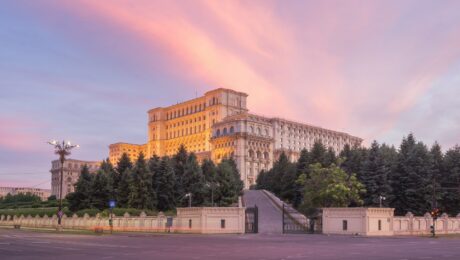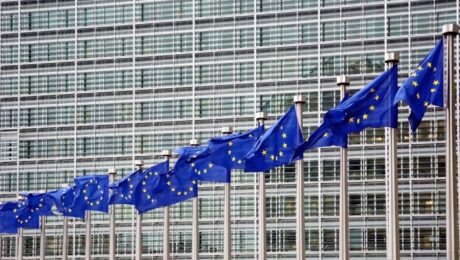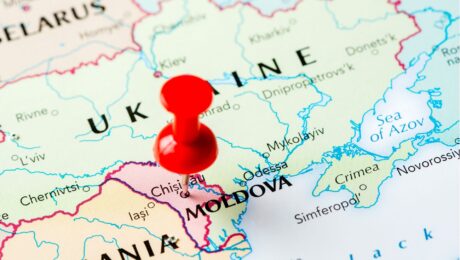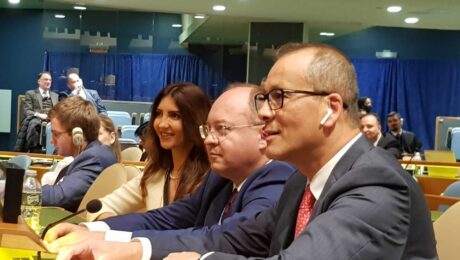U.S. Temporarily Suspends Visa-Free Travel for Romanian Citizens
In a significant policy shift, the U.S. Department of Homeland Security has halted the Electronic System for Travel Authorization (ESTA) rollout for Romanian citizens. This suspension forms part of a broader review into Romania’s eligibility for the Visa Waiver Program (VWP), ensuring that the country meets the program’s rigorous security criteria.
What Prompted the Pause?
An official statement from DHS explained that the review was initiated to verify Romania’s compliance with the strict security standards required by the VWP. Until this evaluation is complete, Romanian travelers wishing to visit the United States for short-term business or tourism must apply for a nonimmigrant visa at a U.S. embassy or consulate.
Background on Romania’s VWP Inclusion
Romania was designated as the 43rd country eligible for the VWP on January 10, 2025, with plans to implement visa-free travel starting around March 31, 2025. This new policy was expected to boost bilateral ties, facilitating easier travel for business and tourism. However, concerns over internal political challenges and security issues have led U.S. authorities to reexamine Romania’s participation.
Internal Challenges and Security Concerns
Recent developments in Romania, including a decline in democratic performance and allegations of electoral irregularities, have raised alarms. Notably, The Economist’s Democracy Index has downgraded Romania from a “flawed democracy” to a “hybrid regime.” These issues contribute to U.S. apprehensions about whether Romania can maintain the high security standards required for VWP membership, particularly in areas such as counterterrorism and law enforcement cooperation.
Implications for U.S.-Romania Relations
Romania’s entry into the Visa Waiver Program was widely anticipated as a milestone that would strengthen economic ties and boost investment between the two nations. However, the current pause may shadow these prospects, potentially straining the bilateral relationship if Romania’s eligibility is ultimately called into question.
Looking Ahead
As discussions continue between U.S. and Romanian officials, Romania’s participation in the VWP remains uncertain. For the time being, the decision underscores the U.S. commitment to upholding the security and integrity of its travel systems, even as it navigates complex international and domestic political dynamics.
This development marks a critical juncture for U.S. security policy and Romania’s international relations, with significant consequences for travel and bilateral cooperation in the future.
- Published in News
Bucharest Enters a New Era of Global Attention
In 2024, the world’s eyes turned more intently than ever toward Bucharest as the Romanian capital embraced a new wave of international interest and acclaim. The city’s appeal is no longer limited to its storied past or impressive landmarks; today, it’s a destination that harmoniously blends tradition and modernity.
From history buffs and cultural enthusiasts to savvy culinary explorers and festival-goers, travellers are discovering a city at the intersection of architectural grandeur, vibrant nightlife, and dynamic cultural offerings.
A Catalyst for Cultural Discovery: Visit Bucharest
One of the key forces shaping this global shift is Visit Bucharest, the English-language online guide that has become essential viewing for prospective visitors. Having reached over 500,000 foreign tourists via its website and another 10 million users through its social channels in 2024, Visit Bucharest is more than just a travel information portal—it’s a cultural ambassador, translating the city’s spirit into a digital narrative accessible worldwide.
Visit Bucharest makes the city’s offerings feel intimate and approachable through consistent, high-quality, visually engaging content on platforms like Facebook, TikTok, and Instagram. From profiles of cutting-edge festivals and concerts to tips on navigating the city’s public transport, the guide ensures that even first-time visitors feel prepared, confident, and excited about their journey.
Moreover, the platform’s partnerships with local events, cultural institutions, and tourism initiatives have allowed it to play a meaningful role in shaping the city’s image abroad. By highlighting Bucharest’s contemporary art exhibitions, street festivals, guided tours focused on communist-era history, and culinary hotspots, Visit Bucharest doesn’t just inform travellers—it actively contributes to the cultural dialogue that defines the city’s global reputation.
A City of Contrasts and Possibilities
At the heart of Bucharest’s emerging narrative lies its captivating duality. The city presents a rare combination of architectural treasures—from grand communist-era structures to centuries-old churches—alongside sleek rooftop bars, innovative gastronomic scenes, and bustling nightlife districts.
This seamless blend of past and future resonates with a new generation of travellers who value authenticity, diversity, and the freedom to craft a personalized urban adventure.
As Bucharest’s international profile grows, so does the breadth of experiences it provides. Today’s visitors can delve into underground art exhibitions after touring opulent museums, sip artisanal coffee in an Old Town café before enjoying a high-energy music festival, or indulge in traditional Romanian fare and unwind at a state-of-the-art spa. This sense of infinite possibility and openness makes Bucharest particularly compelling—an evolving stage for cultural exchange, creativity, and community.
Embracing the Future of Tourism
If 2024’s data and trends have a single message, it’s that Bucharest is entering a new era defined by proactive storytelling, cultural innovation, and meaningful engagement with visitors. The city’s growing visibility on the world stage isn’t just due to well-preserved landmarks or a lively events calendar—it’s also the result of concerted efforts from tourism advocates and local stakeholders passionate about showcasing Bucharest’s unique character.
Looking ahead, Bucharest’s ascent as a multifaceted European capital seems poised to continue. New projects and collaborations promise an even richer tapestry of experiences for tomorrow’s travellers, from cutting-edge digital guides and curated tours to sustainable tourism initiatives that honour the city’s past while shaping its future.
For the modern global traveller, Bucharest has become more than a point on the map—it’s a destination that rewards curiosity, welcomes creativity, and celebrates cultural diversity.
As these trends unfold, the city stands ready to meet the expectations of a growing international audience and exceed them, making 2024 just the beginning of a promising new chapter in Bucharest’s ongoing story.
- Published in News
Romania: A Full-Fledged Member of the Schengen Area
December 12, 2024, marks a historic milestone for Romania! After years of dedication and unwavering commitment, our nation has officially become a full member of the Schengen Area. This momentous occasion signifies the culmination of tireless efforts by the Romanian government and a resounding affirmation of our country’s unwavering dedication to European integration.
Unprecedented Opportunities Await
By joining the Schengen Area, Romania unlocks many economic and social advantages. Eliminating internal border controls fosters seamless movement of goods, services, and people across the region. This, in turn, stimulates trade, tourism, and investment, propelling Romania’s economic engine to new heights.
Enhanced Security for All
Membership in Schengen doesn’t just signify economic benefits; it also strengthens regional security. Romania brings its expertise and unwavering commitment to the table, contributing actively to a more robust and unified European security architecture.
A Testament to Romanian Excellence
This momentous achievement is a testament to Romanian authorities’ unwavering dedication and professionalism. Their tireless efforts in bolstering border security, the rule of law, and law enforcement have been instrumental in securing Romania’s rightful place within the Schengen zone.
A Brighter Future for Europe
Romania’s full integration into Schengen is a victory for our nation and all of Europe. It reaffirms the unwavering strength of European unity and collaboration, paving the way for a more prosperous and secure future for the entire continent.
Join Us in Celebrating!
Lobby Romania invite all Romanians to celebrate this historic occasion. Romania’s full membership in Schengen signifies a new chapter for our nation – a chapter brimming with opportunity, progress, and a prosperous future for all.
- Published in News
Restoring Trust: The Need for Honest Communication in the Wake of Storm Ashley
The Romanian government’s recent handling of Storm Ashley has raised significant concerns regarding transparency and accountability in public communication. As the storm approached, authorities labelled it a „cyclone,” creating a narrative of impending disaster not reflected in the actual weather conditions. This manipulation of information misled the public and undermined trust in governmental advisories.
Misrepresentation of Storm Conditions
Despite producing only light rain and weak winds, the Romanian government’s declaration of Storm Ashley as a cyclone has sparked outrage among citizens and experts alike. Meteorological specialists have pointed out that such a classification was unfounded, as the storm did not exhibit typical cyclone characteristics, such as closed isobars indicating low atmospheric pressure. This discrepancy raises questions about the motivations behind such exaggerated communications, especially when neighboring countries did not report similar conditions.
The Consequences of Misinformation
The implications of this misinformation are profound. By framing a relatively benign weather event as a catastrophic threat, the government risks fostering public panic and skepticism. Citizens may begin to disregard future warnings if they perceive them as exaggerated or manipulative. As one expert noted, “To consider these normal torrential rains as ‘the storm of the last 20 years’ means meteorology is dead”2. Such statements highlight the potential long-term damage to public trust in meteorological advisories and government communications.
Accountability and Transparency
The lack of accountability for these misleading statements is alarming. The government must be held responsible for its communications, particularly in times of crisis when accurate information is crucial for public safety. Authorities should prioritize transparency and honesty to rebuild trust with citizens. Past experiences have shown that failure to provide clear and accurate information can lead to dire consequences during emergencies.
A Call for Responsible Governance
Moving forward, it is essential for the Romanian government to adopt a more responsible approach to crisis communication. This includes:
- Providing Accurate Information: Authorities must ensure that public advisories reflect actual conditions to avoid unnecessary panic.
- Fostering Public Trust: Transparent communication can help restore confidence in governmental institutions, ensuring that citizens take future warnings seriously.
- Implementing Accountability Measures: Establishing mechanisms to hold officials accountable for misleading communications can prevent similar incidents in the future.
In conclusion, while it is vital for authorities to prepare citizens for potential threats posed by weather events, this must be achieved through honest and transparent communication. Only by doing so can we maintain a well-informed public that responds appropriately during times of crisis. The recent handling of Storm Ashley serves as a critical reminder of the importance of integrity in governmental communication—an integrity that must be restored if we are to face future challenges effectively.
- Published in News
International Bar Association Conference in Bucharest, Romania – May 22-23
The International Bar Association (IBA) Bar Issues Commission gears up for the highly anticipated 17th Annual Bar Leaders’ Conference, set to take place on May 22-23, 2024, at the JW Marriott Bucharest Grand Hotel in Bucharest, Romania. This premier event serves as a global platform for bar leaders to convene, address critical issues impacting the legal profession, and chart a course for the future, Valahia News reports.
The event takes place in one of Bucharest’s most exquisite hotels, so the venue’s success is influenced by both the city and its location.
17th Annual Bar Leaders’ Conference Topics: Tackling Pressing Concerns and Advancing the Legal Profession
The conference agenda promises insightful discussions on various topics central to the legal landscape. A key theme will be the role of bar associations during a year marked by numerous national elections worldwide. Experts will explore how these organizations can effectively navigate the political landscape and advocate for important issues while maintaining neutrality.
Another topic sure to spark conversation is the rise of generative AI and its potential impact on the legal field. The conference will explore the disruptions and opportunities this technology presents, equipping bar leaders with strategies to prepare for a rapidly evolving legal landscape.
Furthermore, the program delves into the ever-changing dynamics of bar association governance. Leaders will gain valuable insights into emerging trends and acquire best practices to ensure their organizations’ effective and adaptable management.
The conference will not shy away from addressing the pressing issue of climate change. Leaders will explore bar associations’ crucial role in promoting sustainable practices and advocating for environmental action.
International Bar Association IBA: A Unique Platform for Collaboration and Shared Knowledge
The International Bar Association (IBA) is a unique platform that fosters collaboration and shared knowledge across the global legal community. This international association brings legal professionals worldwide, creating a space for exchanging ideas, best practices, and expertise.

Our profession, through a global association such as the IBA, has a great opportunity as well as the responsibility of assuming a leading role in upholding the rule of law, democracy, and human rights across the world and thus having a positive impact on society.
Almudena Arpón de Mendívil Aldama, President IBA
The Romanian lawyers also see the IBA as a platform for collaboration at the international level between lawyers worldwide, as Alexandru Paun, a senior member of the Bucharest Bar Association Council, acknowledges:

Bar leaders face a complex and demanding role. The Bar Leaders’ Conference provides a unique platform for leaders to share experiences, insights, and best practices with their global counterparts. This collaborative exchange of knowledge is essential for navigating the challenges and opportunities that lie ahead for the legal profession.
Alexandru Paun, senior member of the Bucharest Bar Association Council
The 17th Annual Bar Leaders’ Conference promises to be a cornerstone for shaping the legal profession’s future. Registration details are available on the IBA website, encouraging bar leaders to seize this exceptional opportunity for connection, learning, and collective action.
- Published in News
Romanian PR Agency Lighthouse Represents Eurocom in Romania and Republic of Moldova
Eurocom Worldwide, the global PR network, is strengthening its representation in Central and Eastern Europe by appointing Lighthouse PR, headquartered in Bucharest and covering both the Romanian market and the Republic of Moldova.
Founded by Ana Maria and Steve Gardiner, Lighthouse PR is a strategic PR and communications agency that brings a wealth of global expertise with a team of senior communications specialists offering a background of C-level management roles in large corporations. Lighthouse PR focuses on B2B and corporate communications with a strong focus on international tech companies and sectors such as energy, finance, pharma, retail & FMCG, industrial production, real estate, and construction.
Moreover, Lighthouse PR is Romania’s exclusive member of the Crisis Communication Network Europe (CCNE), a group of specialist crisis consulting agencies dedicated to European markets. The agency obtained the ISO 27001 certification for information security after securing the ISO 9001 certification for its quality management system in 2023.
The Lighthouse PR strategy has been designed to develop strong, long-term partnerships with our clients, whom we support 24/7/365 with the best communication consultancy Romania offers and other partners with whom we share a vision based on trust, expertise and collaboration. Joining Eurocom Worldwide is essential in strengthening our position as a trusted partner for companies looking for PR consultants who deliver above and beyond expectations.
Ana Maria Gardiner, co-founder of Lighthouse PR
Eurocom Worldwide is one of the most significant independent PR and marketing communications networks focusing on key technology, industrial and commercial sectors. Founded in 2002, it comprises 31 member agencies in 54 offices covering more than 90 countries across all five continents. Eurocom Worldwide has a strong presence in Central & Eastern Europe, covering over 20 countries.
- Published in News
Romanian Voted as Moldova’s National Bank Governor
Anca Dragu, a Romanian senator, was voted on Friday, December 22, as the new Governor of Moldova’s National Bank. This is quite an accomplishment for the Romanian lobby and a step forward for the long-time goal of getting the two sister countries closer.
Anca Dragu has a solid background for this position. As an economist, she was appointed Minister of Finance in Romania between November 2015 and January 2017 during the rule of the Technocrat Government. Also, she was the first woman in Romania to become Speaker of the Senate. Also, she worked as an economist at the National Bank of Romania and an economic analyst with the European Commission and International Monetary Fund.
The interesting political game, noted in a comprehensive analysis of the context by Valahia News, is that the Moldovan Socialists voted along with PAS – Action and Solidarity, the party supporting Moldova’s President Maia Sandu, to oust the former governor from office and instate Anca Dragu.
Beyond any political meaning, this is also a step from what both governments intend to accomplish in the foreseeable future. Both sister countries were part of Great Romania, a territory that covered the Republic of Moldova, the southern part of Ukraine, and partially the northern part of Bulgaria. The two countries still yearn, more or less, to get back together as one, and there are exciting movements from both sides, such as to name, appoint or vote. officials from the sister country, precisely what happened with Anca Dragu.
In this context, one theory circulating in Romania is to have elected as president the current president of Moldova, Maia Sandu. This would be another way of getting the nation back together. And, if you have a passion for history, this is how the Union of the Romanian provinces in 1600 and the one in 1859 were accomplished – by imposing or voting the same ruler in all or at least two of them. So, it would just be history repeating itself.
Also, another theory is to have the two countries back together after Moldova joins the European Union, a process which might take at least 5-10 years to finish. Also, this possibility requires another step: for this political decision to be backed by all or the majority of the European member states. However, this hasn’t happened so far, so it would be the first time two European Union states would do this.
However, we also have to say that there isn’t 100% backing of the Union between the two sister countries, not even within their borders. Only half the Moldovan population would vote for a Union, while in Romania, the percentage is more significant.
Either way, this process seems to have its agenda, and the Romanian and Moldovan politicians follow it. In the long run, Moldova would be a more experienced country at the moment it will join the EU. Moldova could learn much from Romania’s expertise in the field and would be able to play its cards better when the moment comes. Also, a larger country, with 23 million inhabitants, would do better than one with 3 million in a European Union where the economic and voting power matters the most.
- Published in News
Romania Wins over Russia and Imposes Judge to UN Court of Justice
The former Foreign Minister Bogdan Aurescu was elected on Thursday, November 9, as a judge of the UN International Court of Justice. Aurescu was nominated for this candidacy by Romania and nine other countries – the Netherlands, Portugal, Sweden, Latvia, Italy, Poland, Peru, Estonia and Bulgaria. He competed for the Eastern Europe position with Russian judge Kirill Gevorgian, supported by Russia, China and Belarus.
Bogdan Aurescu obtained 117 votes in the General Assembly, while Gevorgian only 77 votes. This is a historic defeat for Russia, which hoped to have Gevorgian re-elected. It is the first time in the history of the UN International Court of Justice that the Russian representative is not re-elected.
This is seen as a diplomatic win for Romania and all the European Union members who oppose Russia’s aggression.
In the Security Council, Aurescu obtained nine votes.
All the elected judges on Thursday, November 9, are:
- Bogdan Aurescu Romania
- Hilary Charlesworth Australia
- Sarah Cleveland
- Juan Manuel Gómez Robledo Mexico
- Dire Tladi South Africa
Bogdan-Lucian Aurescu was Romania’s Minister of Foreign Affairs between 4 November 2019 and 15 June 2023 and 24 November 2014 and 17 November 2015. A career diplomat (since 1996), he has the diplomatic rank of Ambassador (since 2014). Between 6 May 2016 and 4 November 2019, he was the Presidential Advisor for Foreign Policy of the President of Romania. On 15 June 2023, he was again appointed as Presidential Advisor for Foreign Policy of the President of Romania.
- Published in News
Romanians’ Trust in EU Collapses
According to Valahia News, the Romanians’ trust in the European Union collapses. This is what the latest Eurobarometer says about the trust the Romanian people lost, especially during the last two years in the EU and the European institutions.
In particular, trust decreased by roughly 10% during the past two years. Only 46% of Romanians see participation in the EU favorably, down from 55% in 2020. Romania has significantly slipped below the EU average in this area, which is currently 62% and is expected to rise from 59% in 2020.
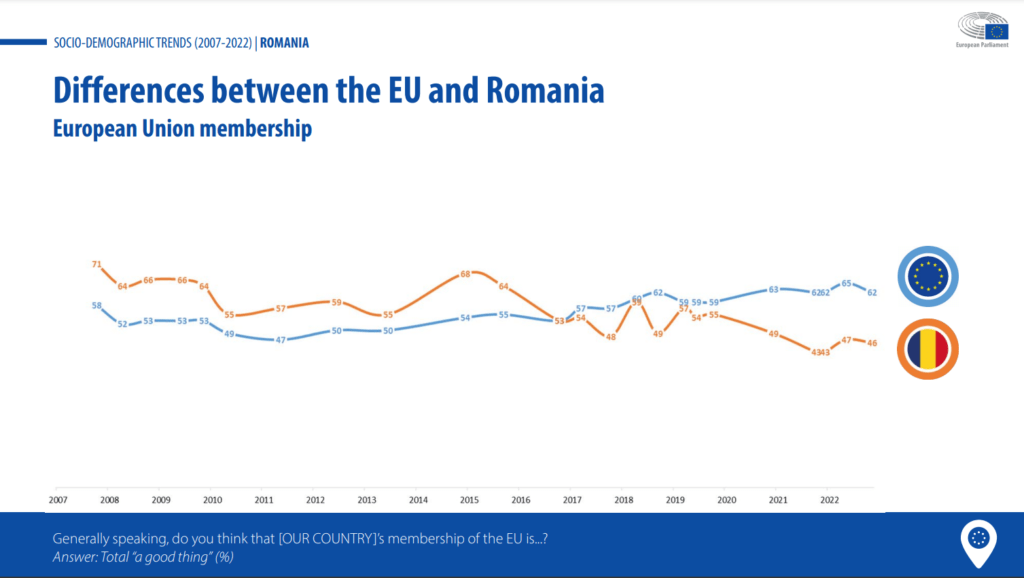
Not only that but the proportion of individuals who still believe that being a part of the EU benefits them fell from 72% in 2020—which was and remains the average for Europe—to 62% presently. In just two years, there has been a 6% decline.
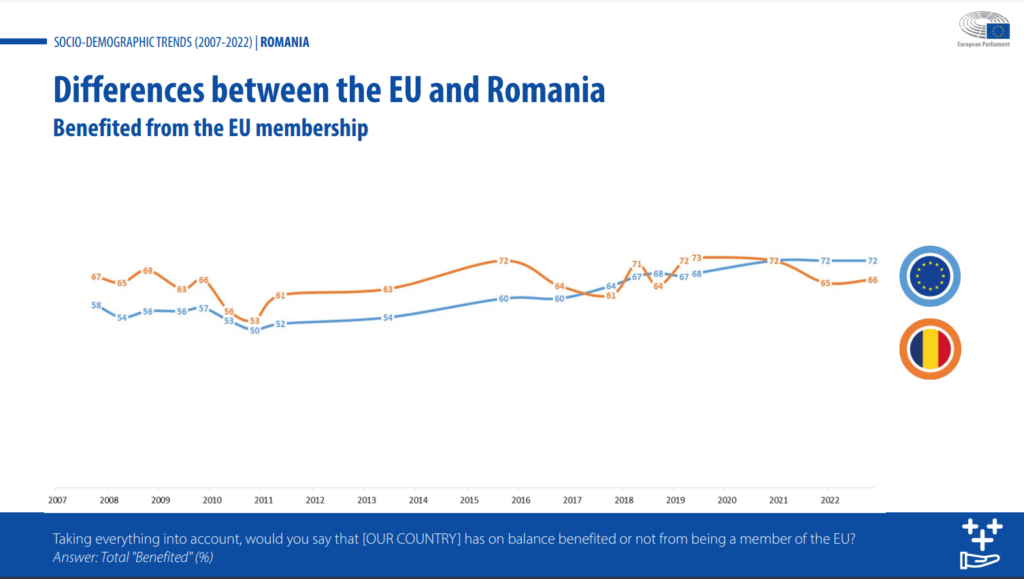
39% of Romanians who were asked why they valued their country’s participation in the EU said it was for the employment prospects. This is due to the fact that millions of Romanians labor overseas. On the other side, the study reveals that Romania falls well short of the EU average in terms of valuing the EU’s economic contribution to the development of the nation or its contribution to restoring peace and security in Romania. Given the EU’s failure to solidify the peace in the region, it is understandable why they think this way. The Romanian people don’t notice much of an impact from the EU, just from NATO, as the so-called „special operation” is taking place close by.
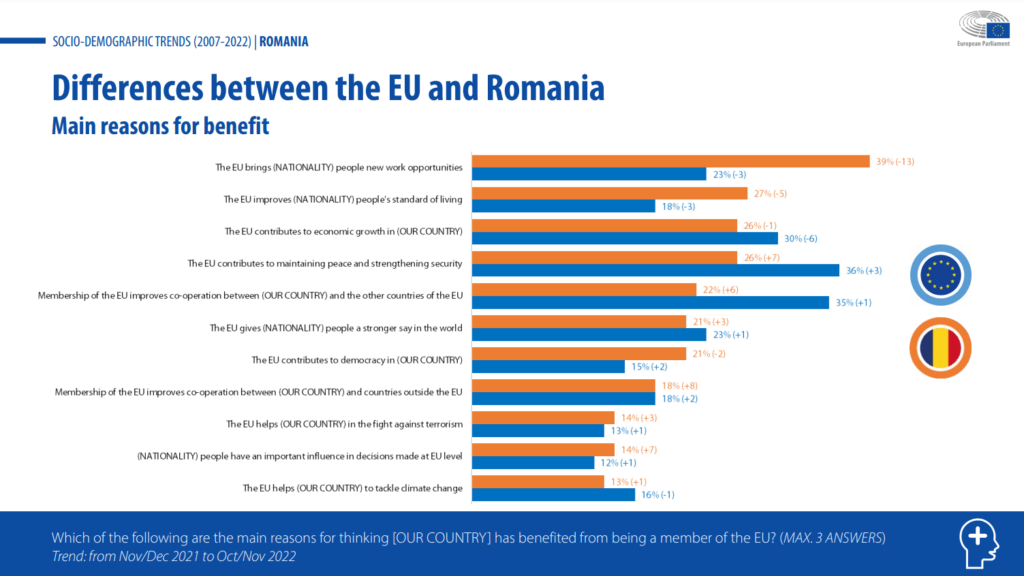
How did Romanians lose trust in their leaders and the EU and why did this happen?
Although the pandemic may have been a major factor in this, we must admit that Romanian officials may have had a part to play. The lawmakers merely seemed to the Romanians as a group of individuals who faithfully carried out EU directives. Romania implemented one of the most autocratic regimes during the pandemic to impose quarantine regulations on its inhabitants. The government once sent personnel armed with heavy machine guns and military trucks onto the streets to deliver a straightforward message: we set the rules now!
Romania also demonstrated unrestricted devotion to Brussels by spending billions and purchasing tens of millions of vaccination shots, just to dispose them now that they had expired. These may be the main reasons why the country is losing trust in the EU.
Also, the recent developments at the European level made more Romanians reject European values. While keeping Romania out of Schengen, European politicians should consider that the country could retaliate. Boycotts against Western companies are underway in Romania. Instead of understanding the people and trying and fulfill their rightful demands, politicians in Bruxelles blame the Russian rhetoric whenever they spot opposition to the European institutions.
Now, the Romanian Government and the country’s elites reap what they sow: the lack of trust of Romanians in the European institutions is only the consequence of how the politicians in Bruxelles and Bucharest treated the population. Suppose anyone in Bruxelles would like to change the current trend and the widening gap between the Romanians and the EU. In that case, they should try and understand that it’s not Russia to be blamed but their own decisions and behaviour.
- Published in News
Romanian MP Pledges to Obstruct Austrian and Dutch Interests if Romania is Not Admitted to Schengen
Pavel Popescu, a member of the Romanian parliament, made a strong remark on Facebook over the weekend addressing the opposition Romania faces while trying to join the Schengen region from Holland and Austria.
Romania made enough compromises to be admitted to the much-desired Schengen region, but when foreign interests are at risk, hurdles and opposition are constantly there, making the compromises insufficient. When it came to debating the Schengen entrance issue, the Romanian MP had had enough and said he had no intention of adhering to instructions for the proper use of diplomatic language.
“I refuse to consider a failure of Romania’s accession to the Schengen area by the end of the year. Or the scenario of postponement until another suitable moment. Two countries are currently opposed: the Netherlands and Austria, with the mention that the Prime Minister of the Netherlands is very agitated these days with phones to widen further the club of the two countries full of issues, who would go into instant withdrawal without the daily overdoses of Russian gas and Colombian cocaine.”
Pavel Popescu, MP of PNL party and head of the Defense Committee
Popescu promised to follow through as he did with China in 2019 if the disagreement resulted in Romania still being denied entry to the Schengen region by the end of the year. Popescu indicated that he would not comment on what Romania did in the past to get into this position but that the final two years of his term would be devoted to passing laws and taking political action that would specifically target Austrian and Dutch businesses and interests (which are essentially Russian) present in Romania.
The sole distinction is that Popescu is not acting alone in this situation. Many of his generation’s legislative colleagues are willing to join him, hence his confidence in this position.
”I know the two countries’ ambassadors will send this post home to headquarters, and they do well. Because it’s not a political threat, but just a firm promise that some of us, who didn’t put our hands in the “honey jar” with these companies because we love our country, are a bit fed up. P.S: I’m not accepting diplomacy tips until December 8th. I am voted politically, I am not a diplomat”.
Pavel Popescu
- Published in News
- 1
- 2


